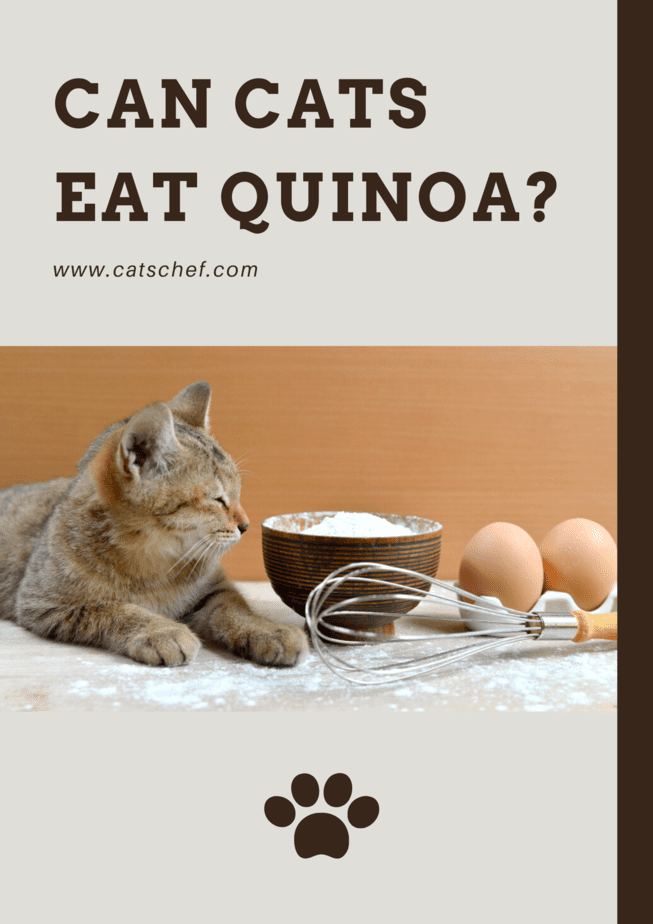This whole-grain product is known as a superfood among humans. You may ask yourself if the same can be said for your pets, or wonder if can cats eat quinoa at all? We understand your reason for concern because your four-legged companion is known to love meat!
The health benefits of quinoa are the reason why they’re so popular in many cuisines. White, red, black, and other versions of quinoa can be found in almost every grocery store.
Since they’re so healthy to humans, how are these grains beneficial for our furbabies? We hope you understand that even if quinoa is healthy, it shouldn’t be constant in your cat’s diet.
Should cats eat quinoa?
It’s really up to you whether you’re going to stick with your pet’s regular diet or try something new. When it comes to cats, they can eat quinoa as it doesn’t pose any threat to their health. Moreover, it’s proven to be highly nutritional.
If you’re concerned about quinoa being a grain, remember to read the content of the cat food you buy. Commercial foods for our fluffs usually contain certain amounts of grain. These ingredients are mainly used as fillers, but can possibly benefit your feline.
Grains are high in fiber content which can help your cat digest her food easily. It’s true that your feline is a carnivore and thrives off of meat, but a bit of quinoa here and there won’t undermine her health.
Health benefits of quinoa

Even though they’re not meat, these whole grains provide a multitude of health benefits for your pet. We know it may sound silly because you probably never thought of feeding your carnivorous pet grains!
However, you will be surprised when you find out all the positive effects of this food for both you and your lap monster. Still, this doesn’t mean you should replace your cat’s regular diet with quinoa.
Protein-rich food
These grains are abundant in protein which is great news for cats. This nutrient is essential for your pet’s overall health and is important for daily functions.
Serious health complications can arise if she doesn’t fulfill her dietary needs. Cats’ principal source of energy is protein, which is made up of amino acids. When your feline does not get enough protein, it can cause amino acid deficiencies, which in turn, can cause specific illnesses.
Amino acids are essential for your furry friend’s body and help maintain her unique nervous system. Without protein, your cat can’t thrive and develop. This means cats can eat quinoa, but let’s not forget the protein from these grains is plant-derived.
Vitamins and fatty acids are also contained in animal protein sources, but aren’t found in plant protein sources. Cats are unable to produce as many amino acids and vitamins as dogs or humans, which makes them completely reliant on animal protein sources.
But, quinoa provides a diverse spectrum of amino acids that are needed for muscle development and immunological functioning, among other things.
An abundance of amino acids
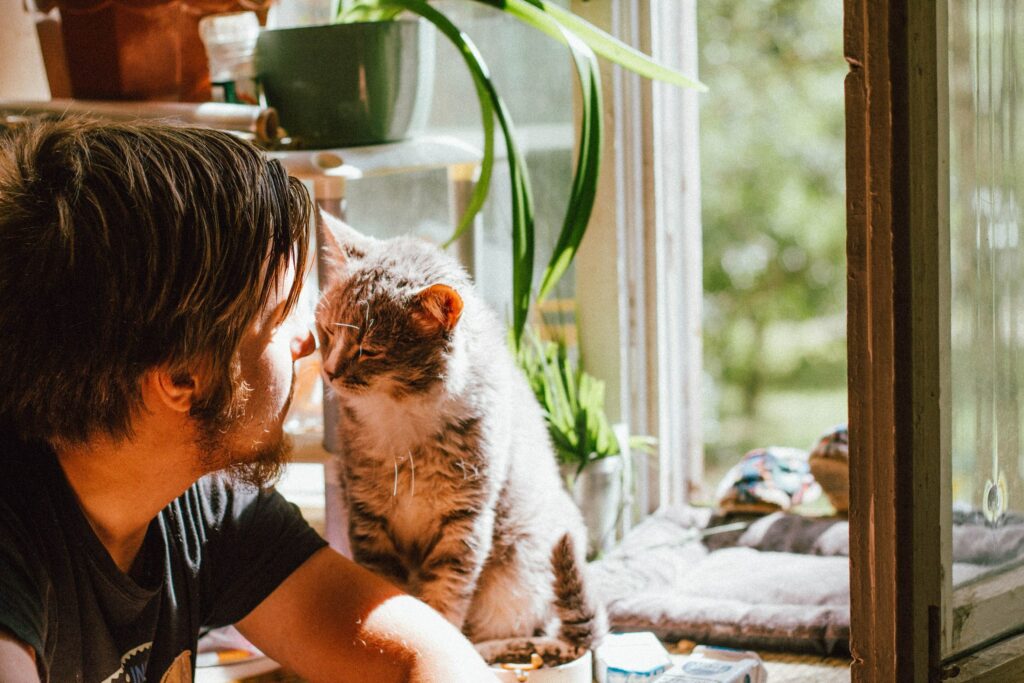
This grain provides your cat with much-needed amino acids. The vast majority of them can be produced by cats, but some need to be ingested.
Felines have eleven crucial amino acids that they can’t synthesize themselves. This means they need to get them through their diet, and luckily, quinoa can provide some of these! Among the essential acids, one of the most important ones is lysine.
Unlike many other grains, quinoa is a great supplier of lysine. This amino acid is necessary for proper protein synthesis. Although it’s uncommon for cats to be deficient in lysine, it’s a great health risk in case it does happen.
Lysine deficiency can result in a variety of medical problems because it’s involved in lots of growth and development processes.
Next to lysine, we have glutamic and sulfur-containing amino acids. These compounds together make globulin, a protein largely found in the bloodstream. It’s highly important to both cats and humans, and produced in the liver.
Globulins are involved in proper liver function, blood coagulation, and help prevent infections. Cats can experience hypertension and low blood pressure if their globulin levels are insufficient.
Although it’s rare, it doesn’t mean it’s not happening. So be on the lookout for symptoms such as extreme tiredness, and fatigue in your feline friend.
Can cats eat quinoa because of high fiber content?
Constipation, high cholesterol, and high blood pressure can all be prevented if your cat consumes enough fiber. Fiber-rich foods like quinoa may also help your floof maintain a healthy weight.
This is because high-fiber diets make her feel satiated for longer periods of time, potentially lowering their overall food intake. It’s a great option if you have a chunky fluffball that could lose some weight.
A source of vitamins and minerals
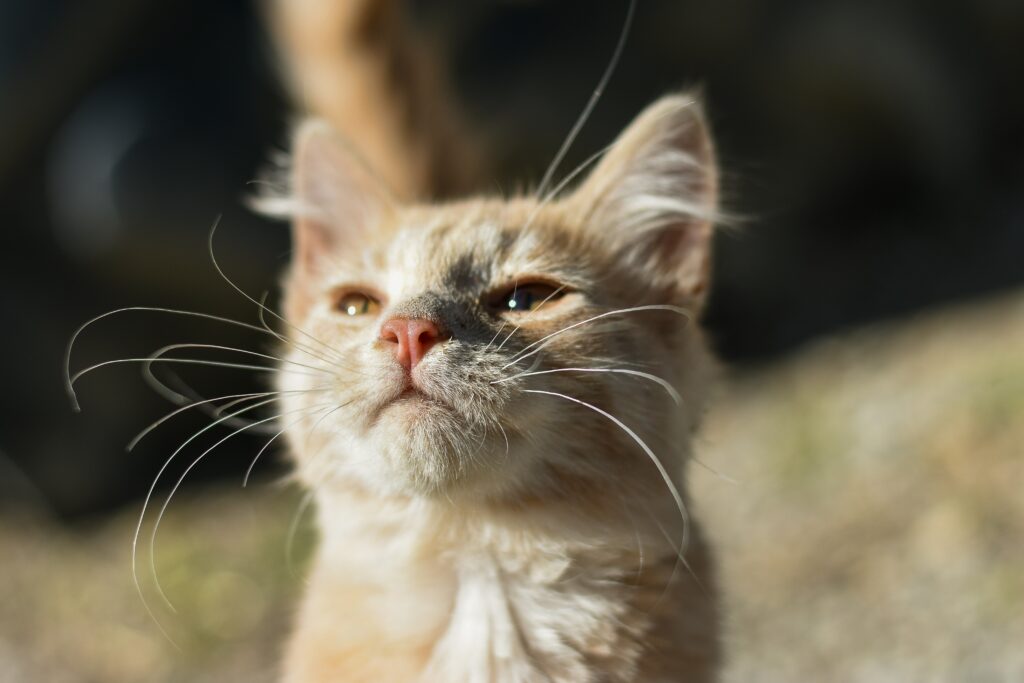
This grain is abundant in vitamins and minerals as well. For example, quinoa has a high vitamin E content. This is an antioxidant that may assist to lessen the risk of cancer, coronary heart disease, and a variety of eye ailments.
Riboflavin helps the body break down carbs, proteins, and fats to produce energy; whereas Folate is an essential B-complex vitamin that plays a critical part in DNA creation.
Magnesium, calcium, manganese, phosphorus, copper, iron, zinc, and potassium can all be found in quinoa. All these minerals help keep your feline’s blood pressure normal, form connective tissues, and build strong bones.
These health supplements boost your cat’s immune system, repair cells and tissues, as well as help with metabolism. These are all crucial to your pet’s health and quinoa is a great way to fulfill these requirements.
Quinoa is a supply of antioxidants
Quinoa is also known for having a high antioxidant content. Antioxidants are well-known for helping both humans’ and cats’ immune systems. They keep your furry friend from getting sick all the time.
They keep her healthy and active, and could also extend your furball’s lifespan! Felines that get a healthy level of antioxidants in their food are much more likely to live and stay healthy for a longer period time than felines that don’t.
Gluten-free food
Quinoa is naturally gluten-free, making it a healthy option for cats, or anyone who wants or needs to exclude gluten from their diet. Gluten is a protein found in grains like rye and wheat. Gluten allergy or intolerance, although uncommon in felines, causes gastrointestinal disorders.
Symptoms such as vomiting, bloating, diarrhea, lethargy, and skin issues such as dermatitis may occur. A grain-free diet isn’t necessarily healthier for your pet, but if you notice any of these symptoms, it’s possible gluten is the trouble-maker.
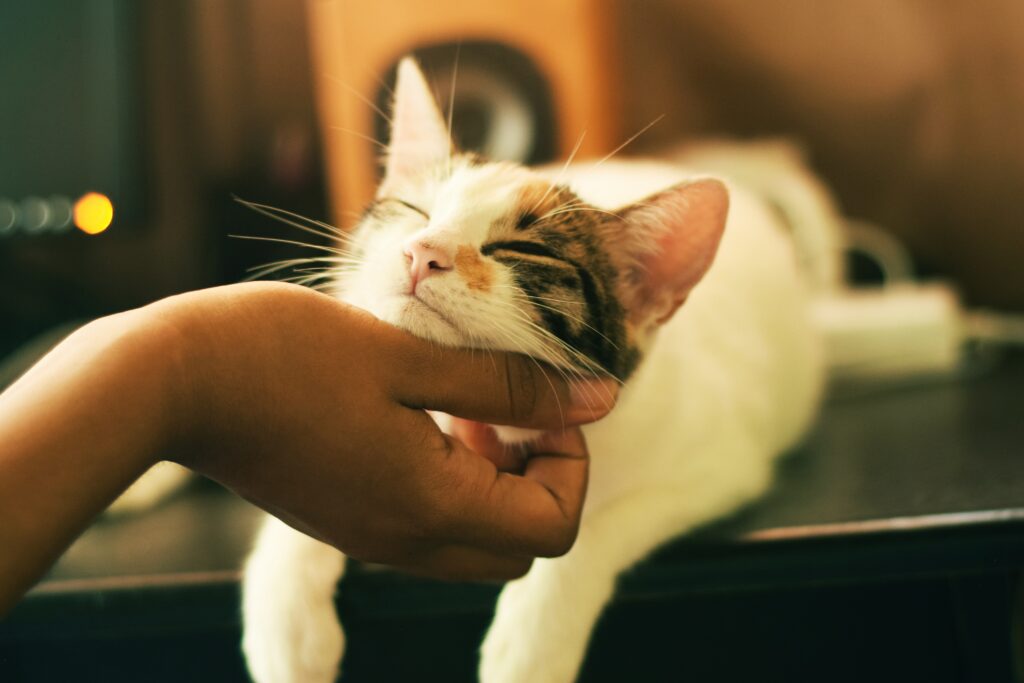
Can cats eat cooked quinoa?
If you were wondering “can cats eat quinoa that’s cooked”, the answer is yes. Actually, cooked quinoa is the best way to serve it to your cat. But, we know these spoiled little creatures can sometimes be picky. It’s great if you want to add some quinoa to your cat’s diet, but the question is how?
First and foremost, cooked quinoa should be plain. This means no flavors, no added sauces, spices, or seasonings. Felines and spices don’t go hand in hand, and they can make them sick. Some spices, like black pepper, can have a few potential benefits, but others, not so much.
Daily use of spices can be harmful to your cat’s health. There may be some gastrointestinal issues, with the most common symptoms being vomiting, diarrhea, and stomach pain.
Not to mention the table condiments that we tend to use every day. For example, excessive amounts of salt can lead to sodium poisoning in felines. This is why you should make quinoa separately for you and your pet.
Beside spices, your floof could have some trouble trying new foods. She loves routine and is easily accustomed to it. Some cats will be more than happy to try out new stuff because they are curious creatures after all.
However, if your pet is giving you trouble, go slow. In the beginning, start feeding her small amounts of quinoa. A tablespoon for an adult cat is more than enough and just the right amount to get you started.
If she still has an unamused facial expression, the last option is just mixing it in with her regular wet food. This will probably do the trick, just remember to monitor her after eating new foods for the first time to see her reaction.
What could possibly go wrong?
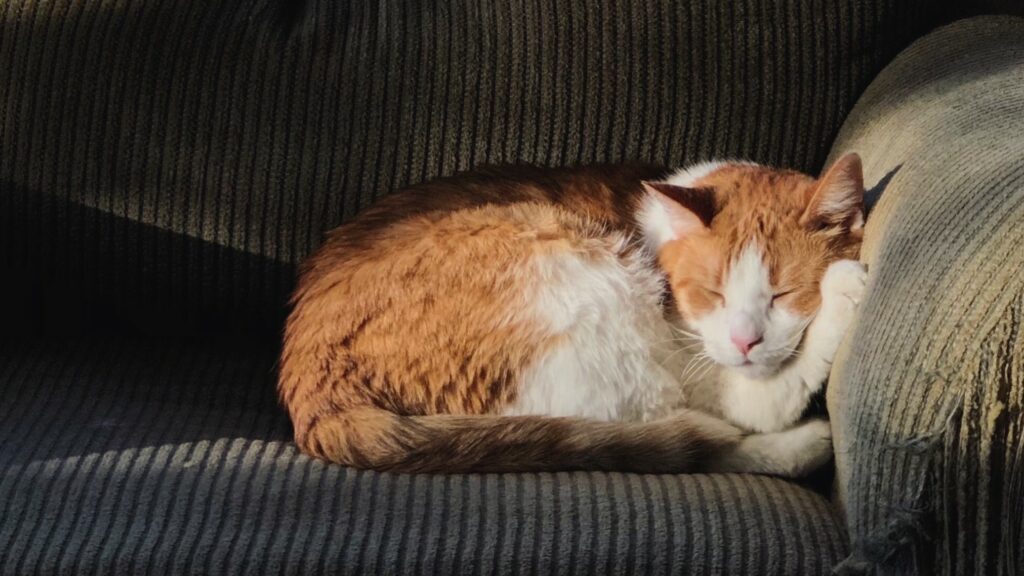
Because quinoa is heavy in fiber, it may cause digestive issues in your cat, especially if they consume too much. If the quinoa upsets your cat’s stomach, either lessen the amount you’re giving them or stop giving it to them altogether.
Grain-free diets are preferred by the majority of cats. Meat is high in protein and amino acids, which felines require in their diet. It’s true they need some fiber in their diet, and next to quinoa, a small amount of steamed and ground vegetables is a good way to get it.
Just like chia seeds, quinoa is a superfood for humans, but the same can’t be said for our four-legged companions. Sure, it’s beneficial, but quinoa can’t replace meat in any way.
Other than that, quinoa is considered to be a high-carb food. Carbohydrates are required on a regular basis to meet your cat’s demands, but an excessive amount can be a cause for concern.
Quinoa is high in calories, so it’s not the best possible food for cats. Increased fat storage can be a consequence of eating too many calories. This could result in your cat gaining weight and putting strain on her joints.
Can cats eat quinoa sprouts?
No, cats can’t and shouldn’t eat quinoa sprouts as these can be highly poisonous to them. Quinoa has a high concentration of saponins, which are naturally occurring substances, but have negative effects on your feline.
Vomiting, appetite loss, depression, and increased salivation may occur if these quinoa sprouts are consumed. Pupils in affected cats may also be dilated. Apart from being toxic, quinoa sprouts are bitter and it’s unlikely your cat will try eating it on her own.
What about quinoa flour?
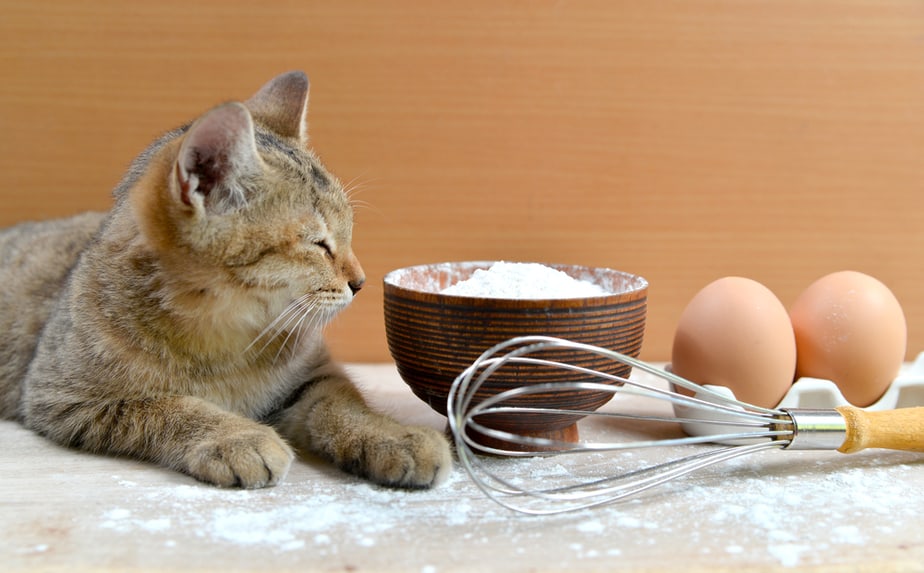
It’s particularly high in protein, fiber, iron, and unsaturated fats. It also has antioxidant and anti-inflammatory properties that may help with intestinal health.
In contrast to other flours, such as wheat, quinoa flour is gluten-free. Therefore, if you decide to make some homemade cat treats that require flour, opt for this healthy choice!
Is quinoa safe for kittens?
While quinoa isn’t harmful to adult cats, you should avoid offering your kitten any of these additional grains. Small furballs have delicate digestive systems and grow like weeds, so it’s essential to feed them high-quality foods.
Kittens shouldn’t eat anything that isn’t prepared just for them. To grow strong and develop fully, they require a well-balanced and nutritious diet. Your kitten’s food will have a significant impact on her future health. Quinoa is not a food that your kitten will thrive off in her early years.
Can cats eat other grains?
Because cats are carnivores they don’t require a lot of grains in their diet. When it comes to your pet’s food, keep in mind that meat should be at the core of her diet. Meat contains amino acids, the building blocks of protein, which are essential for your cat’s survival and well-being.
In comparison, your fluffball shouldn’t consume a lot of carbohydrates or grains. This doesn’t imply that she shouldn’t consume any at all, but some felines can even have allergic reactions to grains. If this is the case, you know what to do.
Unlike cereal, quinoa is one of the grains that can actually provide your furry friend with multitudes of health benefits. However, don’t continue to feed grains to your cat if you discover that she’s allergic or sensitive to them. Grain isn’t necessary for your cat, so it’s not a big concern if she won’t eat it.
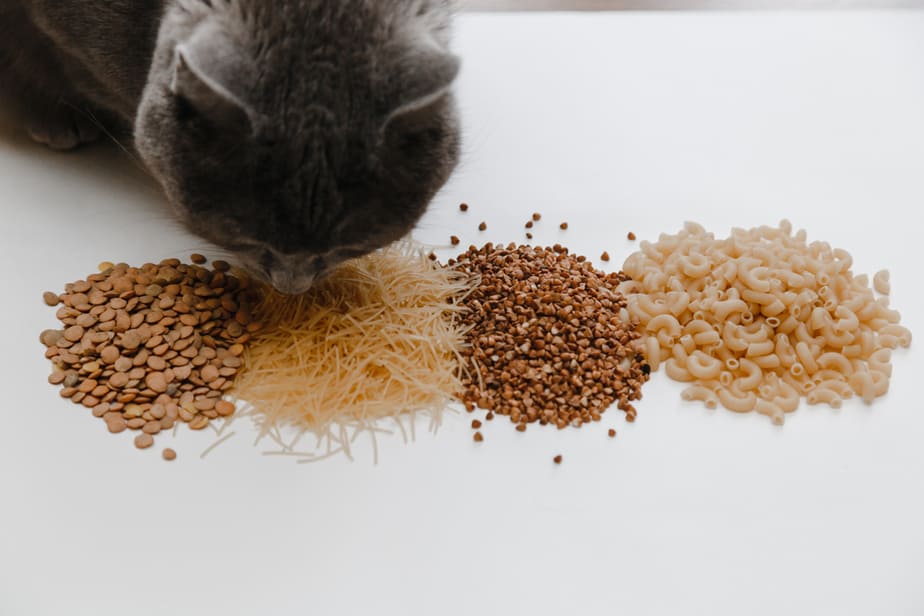
To sum up
To conclude on the topic of “Can cats eat quinoa”, let’s reflect on the main points. Quinoa is a grain which isn’t necessary in a feline’s diet. However, it can serve as a filler to the cat food and be a great addition to your pet’s diet.
Unlike other grains, quinoa is highly beneficial to both you and your fluff. It offers a great source of vitamins, minerals, protein, fiber, and amino acids. This superfood is also gluten-free which makes it a perfect choice of food for people and cats with gluten sensitivity.
Cooked, plain quinoa is the best way to feed your furkid some of this amazing food. Remember to stay away from any additional sauces, spices or seasonings. These are known to upset your cat’s stomach and bring her discomfort.
If your furball is a finicky eater, try putting a tablespoon of quinoa in her wet, canned food. If she isn’t keen to oblige, don’t force it. Some cats just can’t be bothered, even if you mean the best.
Most importantly, you should note that quinoa is not meat-based. Although rich in protein, it’s derived from plants. Cats can have a hard time digesting plant material and this can lead to some complications.
Due to its high-fiber content, quinoa can make your cat constipated. Your feline may experience some abdominal pain, bloating, and gasses. Before any introduction of new foods in her diet, make sure you have a word with your vet.
You may be interested: Can Cats Eat Grits? Does This Breakfast Option Get “Yay” Or “Nay”?
